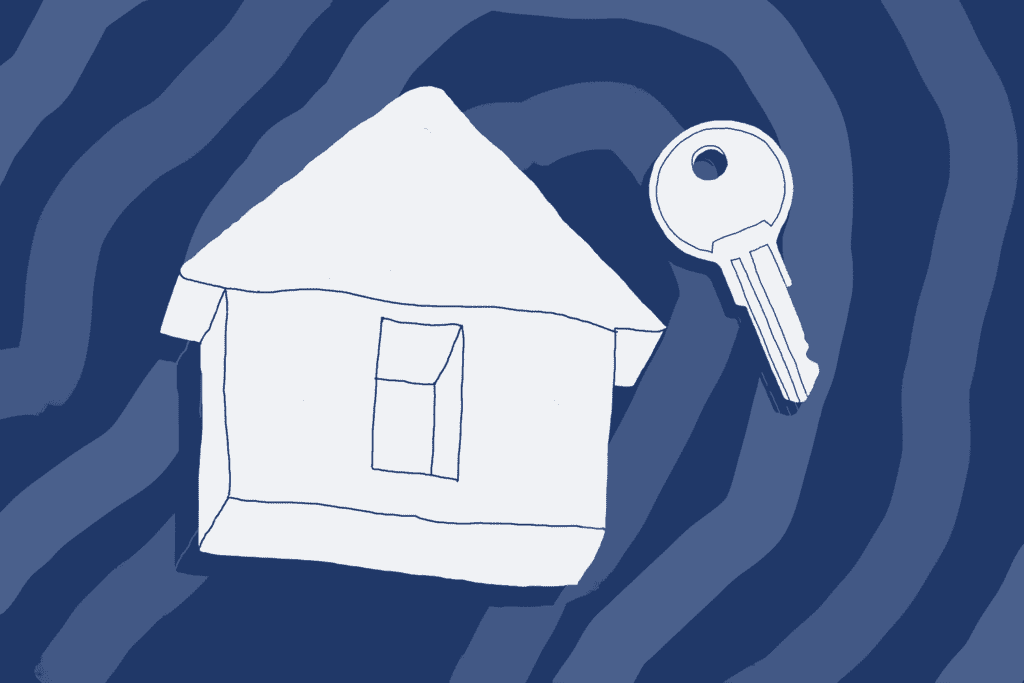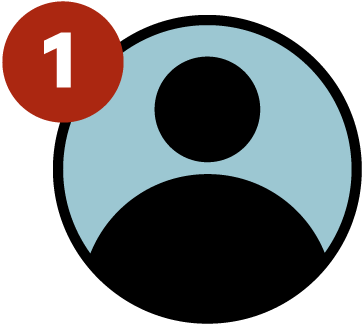
The old children’s song got it wrong. It’s not “first comes love, then comes marriage, then comes baby in a baby carriage.” If you’re like 35 percent of newly married couples, it’s actually love-marriage-mortgage before any kid stuff.
If some of your friends have already taken the home-buying plunge, you know it’s at least do-able. But just as with plunking down cash for the right ring (Solitaire, Bezel or Halo setting?), doing the necessary diligence before buying a home and taking out a mortgage will help you avoid major misery down the road.
“Think of buying a home like scheduling brain surgery. It’s the single biggest financial decision you’re likely to make and you want the right team of experts on your side,” says Elysia Stobbe, a mortgage expert in Washington D.C. and author of the delightfully titled How to Get Approved for the Best Mortgage without Sticking a Fork in Your Eye.
That means downloading The Zillow and Trulia apps and scrolling like a real-estate-crazed zombie, right? Wrong. Sure, 99 percent of millennials shop online for homes (according to Inc.), but what more than three-quarters of us forget according to the Consumer Finance Protection Bureau (CFPB for short)) is to shop around for an actual lender or the right mortgage products, too. And doing so could help you save. “For an average home price of $200,000, it could be an extra $10,000 over the life of the loan,” says Jim Morrison, home-buying expert and author of Home Buying in 30 Minutes.
Work Out All the Legal Stuff in Advance
“Most couples divorce because of money problems and financial disagreements,” says divorce lawyer Kathleen Wobber, who’s been practicing family law for 25 years in Baltimore, MD. “In case of the four Ds—death, drugs, divorce, disinterest—you want to have a written agreement so you’re both on the same page.”
Okay, if that sounds a little—or a lot—scary, don’t freak out. This isn’t a prenup explains Wobber, it’s a plan to divorce-proof your marriage. You want to decide the following:
- who will be on the mortgage
- who will be on the deed
- how you’ll each contribute financially to the mortgage and other shared bills, such as utilities, food, childcare (if applicable)
- who will ultimately be responsible for payments
- who will own what — if one or more of those deadly Ds should arise
And then get ready to sign those contracts.
Each state is a little different, but if one person isn’t on the deed, but has been paying the mortgage—or vice versa—it’s not necessarily guaranteed you or they’ll be entitled to half of the house if you decide to separate. “If one of you takes a career break to provide childcare or isn’t contributing to the mortgage for other reasons, it’s crucial to come to an agreement about how you see the ownership over the family home,” explains Wobber.
Alas, adulting is hard, but doing so will score you rock-solid-couple status—and make the whole home-buying process squabble-free (don’t worry, you can fight about other things).
Find the Best Lender and Mortgage Broker
Next up, it’s time to go swiping. For a loan, that is. While your days of online dating may be in the rearview, you can apply the very same principals here. Figure out your deal breakers, and then start looking for the best possible options, i.e. brokers and lenders whose loan products might be a total score.
How do you find the right lender? Experts have different opinions, but many agree that shopping around for a broker or lender in your area through referrals—rather then simply searching for a big national lender online—is key.
A mortgage broker (who may or may not be affiliated with one bank) should be knowledgeable about many different loan products out there and can help you choose the right one (or ones) for your specific needs.
“Brokers work on commission, typically by a system called ‘points,” says Morrison. “A point is one percent of the loan amount. The typical broker fee is one point (though they can charge more) and it’s usually paid by the borrower at closing.”
Borrowers can buy down the interest rate on their loan by paying a certain number of points up front. “A lender might quote you a 5 percent rate and give you the opportunity to buy the rate down to 4.5 percent by paying 2 points (2 percent of the loan amount),” he explains. Tricky huh? This is why you need a broker.
A lender (often a bank) specializes in making sure financing goes through smoothly from offer to closing (the day you sit down with all involved, including lawyers, and sign the various documents) and forever after.
“If you go with a national bank, broker or lender who isn’t incentivized to get referrals in your area, you may see blunders at closing and may not be able to get answers when you need them,” explains Morrison.
Stobbe recommends asking friends and family who’ve recently gone through the process in your area for recommendations. “Parents are great, but you want someone who’s recently been through this.”
Ready to get exclusive with a broker or lender? Strobbe has a useful, comprehensive list of questions in her book, but here are the crucial ones:
- Are you a licensed loan officer with the National Mortgage Licensing System?
- How long have you been in business?
- Do you have client surveys or third party reviews I can see?
- What’s your percentage of closed loans? (Less than 50 percent of loans actually close. A good lender should have a high rate; 95% is not unheard of.).
- What’s your success ratio of closing on time?
- Will I deal with you for the entire process?
- Will you be there personally to attend the closing?
- How do you communicate? (By text, email, phone?) How long does it take to alert me of progress?
- Do you have a direct line? Or will I be routed to the next available customer service representative?
Basically, you’re looking for a ride or die. “You want someone who is going to be sweating it out with you if something isn’t there during closing versus a service with an 800-number,” she says. Interview three brokers and decide who you feel most comfortable with — they are basically buying your home with you.
Get Pre-Approved for a Mortgage
So you’ve met your match. Now, it’s time to prove you’ve got the goods. The lender will ask you for financial information, namely the four “Cs”—credit, capacity, capital, and collateral. Typically, they’ll look at each of you separately, and then take the credit score that is lowest; they are always trying to minimize risk and make sure you’ll be able to pay.
If you have any outstanding collections or credit issues—hey, we’ve all been there—they’ll advise you on how to resolve them—or possibly keep them as is until the sale goes through. (“Sometimes, past collections can come up as ‘new’ if you pay them, so it could be better to wait,” says Stobbe.)
Finally, you’ll use your combined income (or one person’s, if that makes more sense) to determine a “front-end rate” and “back-end rate.” A front-end rate is the new estimated total mortgage payment-to-gross income ratio, and the back-end rate is your total debt-to-income ratio. This will determine the loan range you should be able to afford.
Your new lender should also go over everything with you to see how much you feel you can realistically take on. Sometimes people have too much debt, and even a payment of 25 percent of income will feel like a squeeze.
Once you have your letter of pre-approval, you should be ready to go. Yes, now it’s time to download the Zillow and Trulia apps.
Figure Out Which Type of Mortgage Loan Is Best
You’ve gotten pre-approved, found a home you’re into and now you’ve made an offer and gotten accepted—sweet! It’s time to officially apply for that loan.
Most loans fall into three categories these days: VA (for veterans), FHA (government-backed loans) and conventional (from private banks and other lenders.) Within conventional are 30-year-fixed, 15-year-fixed and adjustable rates (ARMs.) You can only take out one for your home purchase.
There’s also a type of loan called a “balloon,” which offers lower payments up front with one larger payment after a certain number of years. Heads up before you go there—these can be the riskiest to take on, since you’ve got to be ready to move, refinance or make that XL payment when it comes due. Example: after 15 years of paying down the interest, you suddenly have to pay the last $100,000 in its entirety.
If the price exceeds the limits that Fannie Mae and Freddie Mac will back, it’s considered a jumbo loan and most likely you’ll need to have higher quality credit for a bank to consider lending to you. The cutoff for jumbo loans varies by region but generally ranges from $453,100 to $679,650 in counties with high home prices.
HELOCs are another type of loan—it stands for “home-equity line of credit”— and are usually ones you can get once you’ve built up equity in your home. For a million-dollar loan, however, some brokers may suggest taking out a jumbo loan AND a HELOC from two separate banks. Only if you can afford it, of course. (Also note: Some banks won’t offer you a mortgage at any rate if you can’t get flood insurance for the home.)
Since it’s your first time, you may also be able to get hooked up with an assistance program, which may be available at the local, state and federal levels. Ask your broker if qualify, or do a search on your state or city .gov page. You might be able to score down-payment assistance or find a mortgage with lower-to-no down payments.
Okay, so what’s the difference between the FHA, VA and conventional loans? Some areas have certain homes that qualify for government loans (you can search online.) These loans allow credit scores in the 500s (that’s considered low) and make it possible to put down as little as 3.5 percent (5 to 20 percent is normal). Take advantage of these if you can.
Typically, conventional 30-year-fixed loans are most common. That means you’ve got 30 years to make all your payments on the principal and accrued interest, though, you can also make extra payments and pay off the debt sooner, usually without penalty. Lenders require a 20 percent down payment, or you’ll be slapped with PMI, or private mortgage insurance—extra insurance that’s tacked on until you’ve built up 20 percent equity. (The rules and minimums change if you plan to buy a building that has tenants.)
Putting less than 20 percent down and just paying PMI sounds like a great way to get into a home sooner, right? Not so fast. It may be worth it to save up the full 20 percent, since you may have to refinance to stop paying the PMI. Right now, interest rates are on the rise (they’re expected to hit 5 percent in the first quarter of 2019), so refinancing might not be a better option in a few years (one always hopes to bring down the interest rate, not increase it, though some people refinance to shrink the monthly payment even if that means keeping a loan for a longer time).
If you’re thinking 30-year-fixed is the way to go, consider an ARM. “Most first-time home-buyers like the idea of one steady, fixed payment that never increases, but there could be better options out there,” says Morrison. “If you’re buying a condo and think you might move in a few years as more and more millennials are doing compared to their parent’s generation, an ARM, or adjustable-rate mortgage, might offer a better deal on interest rates.”
A 5/1 ARM, for example, means that you’ll pay a lower rate for the first five years. Then it CAN go up or down every year after the first five and for the life of the loan. Bottom line: You’ve got to know how long you’ll likely keep the home; if loan rates are high or low relatively speaking; and what risk you’re willing to take on.
For example, say you lock in a 4.25 rate this year on a 5/1 ARM—that’s great. But after five years, interest rates could rise to 6 or 7 percent or higher, and if your plans change and you need to stay in your home, you could be paying thousands extra for each year to stay. If you’d locked in a 5 percent rate on a 30-year-fixed, that wouldn’t have happened. Talk through every single detail with your team to make sure you know what you’re getting into.
Find the Best Mortgage Deals
A mortgage broker generally does the shopping for you. Consumers can’t really do that. A lender might advertise a certain rate, but that low rate is likely only available to first-time buyers with immaculate credit, no debt and a fat down payment. Getting pre-qualified by a mortgage broker means they’ve gone through your financial history, shopped the programs you’re qualified for, and presented you the best deals. So, how should consumers shop? Find a reputable, local mortgage broker.
That said, of course, you can dig all you like just to get the conversation flowing with your broker. Where to get started? US News & World Report has a comprehensive guide to mortgage lenders. Their top 10 list includes the following:
- Best for small down payments: Guild Mortgage
- Best for online service: Guaranteed Rate
- Best for USDA loans: Fairway Independent Mortgage
- Best for jumbo loans: USAA
- Best for customer satisfaction: Quicken Loans
- Best for adjustable-rate mortgages: Regions Mortgage
- Best for VA loans: Veterans United Home Loans
- Best for FHA loans: Bank of America
Prepare for the Closing and Avoid Scams
You’ve put in an offer on a beautiful 2-bedroom craftsman. Or, maybe it’s more like a sleek condo downtown with a river view. You get the call—it’s been accepted. It might even feel better than your college acceptance letter. Maybe. Remember that 50 percent stat about closing? Now, it’s time to make sure the loan goes through.
If your lender isn’t at the top of your call log, he or she probably will be now. File every single document they ask for, on time, so the bank can start the origination process for the loan. It will also kick off appraisals and inspections. It can take more than a few weeks to schedule these, and if any issues are found (leaky roof, cracked foundation, dead bodies in the basement…), you’ll need to figure out a way to resolve them with the seller. This is why a 30-day close isn’t always possible says Stobbe.
“Consumers are not required to have an attorney represent them,” says Morrison. But it can be a good idea, in case the seller’s attorney redlines any documents or there are disputes about fees along the way, such as closing costs. Your broker or lender will most likely have a lawyer they work with that they’ll recommend. “Their fees range depending on the market and the complexity of the transaction, but between $300-$1,000 is typical,” says Morrison.
You may also need an animal or pest inspection, and radon inspections in some areas of the country. “Expect to pay up to $1,000 on these costs,” says Strobbe.
Things only get hairier from here. Problems with your financials or the seller’s could also halt or stall the process. Again, here’s where a good lender can come in handy. “It can be stressful, but if you’ve chosen the right team, they’ll have done all the necessary upfront work and can help you problem solve,” says Stobbe.
You get the call (or most likely email or text alert), letting you know all is clear, and it’s time to close. Adulting level 10 unlocked.
Along with any necessary paperwork, you’ll be asked to provide a cashier’s check or wire the funds from your lender to the seller’s bank. Be careful. This could be your game over moment. In recent years, scammers have hacked people’s emails to target these home-buying moments, and are watching and waiting until you’re asked for wire info.
“An email arrives asking you to wire the funds to a different account with a very similar name—maybe your seller’s bank is ABC, but they call themselves ABD,” says Stobbe. “You end up wiring the funds to the scammer’s account and it’s immediately re-routed. If it happens over the weekend, it can take forever to track down. Just be careful and make sure you know exactly where the money is going.”
Once everything has been accepted and documents are signed, you are now a new homeowner. Happy dance it out. High-five everyone in the near vicinity. In just a short few months, you’ll be calling this mess of paperwork your new home.























